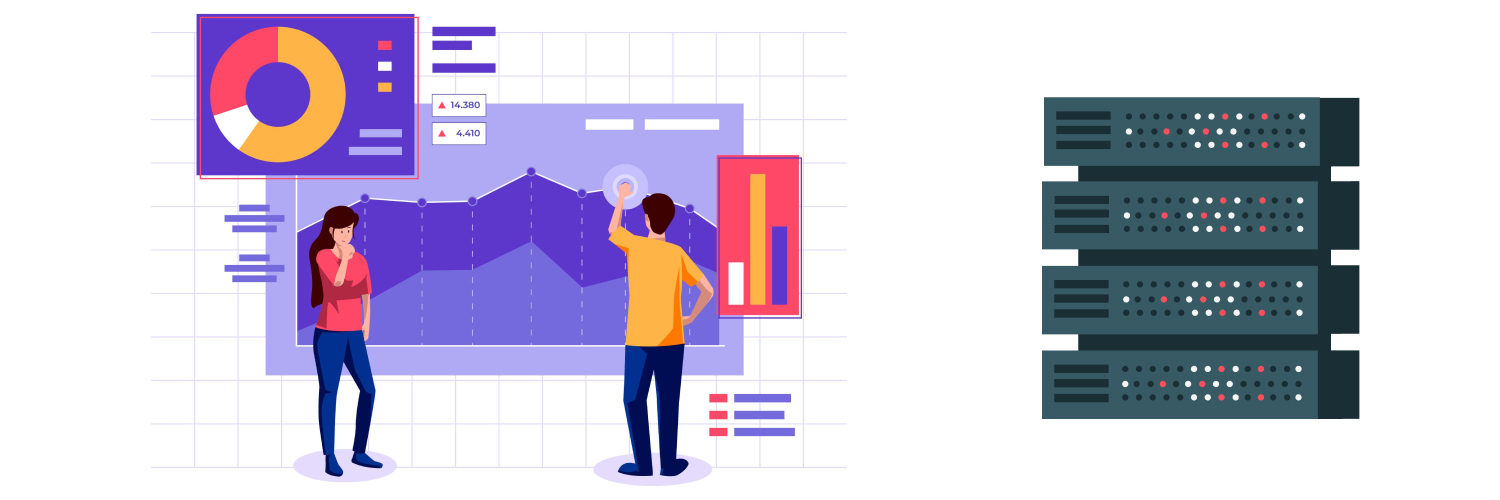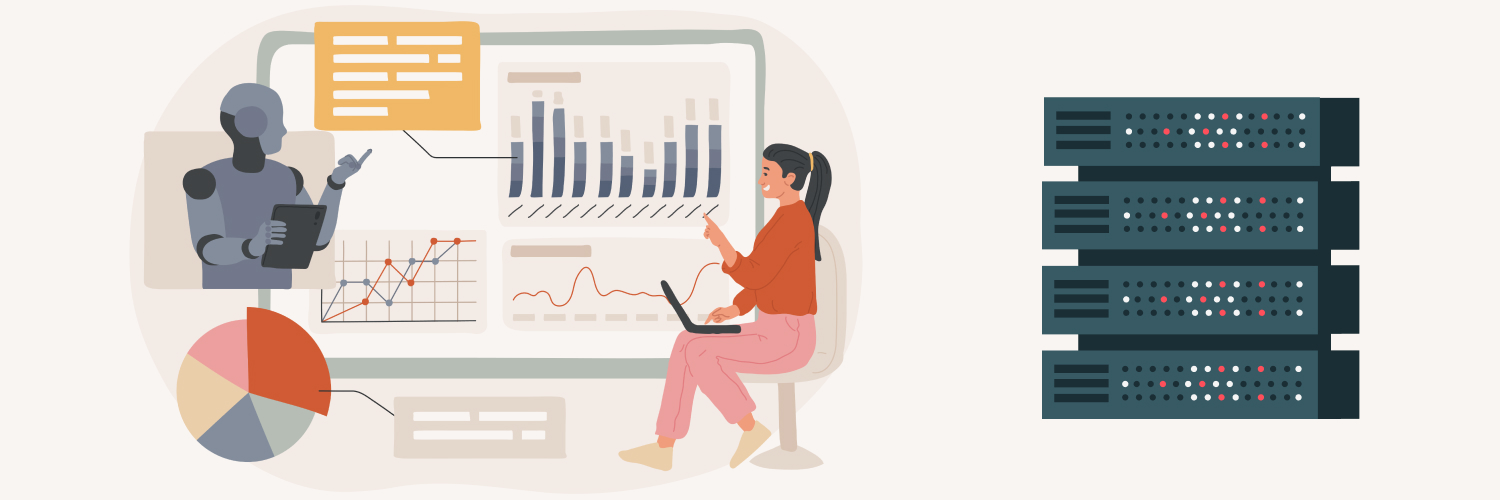Understanding An Antidetect Browser: What It Is And How It Works
When you visit a website, your activities can be tracked and monitored using various methods such as cookies, IP address tracking, or browser fingerprinting. The website owner can create a profile of your activities to target you with relevant ads or even sell the information to third parties that may use the data for malicious activities or exploit your privacy.
An antidetect browser is designed to help you regain control of your online privacy and security. It uses several techniques to cover up or spoof your identity and activity, making it almost impossible for websites to track and monitor you. The browser can also meet the needs of advanced users who require extra features such as proxy management, automated form filling, and more.
Find Your Ideal Proxies
Speed? performance? Geolocation? Our proxies are up to the challenge!

In this blog post, we’ll look at how an antidetect browser works and go over some features that can protect your online privacy and security.
What Is an Antidetect Browser?

An antidetect browser is a specialized web browser that utilizes various techniques, including encrypting data transmissions, rerouting IP addresses, disabling cookies, and other tracking methods to avoid detection and tracking by another entity. It can also bypass content filters and region restrictions, allowing you to access websites and content that may be blocked or restricted in certain countries. It is particularly useful if you need to access restricted content regularly.
This technology also offers more secure communication and data storage methods, making it an ideal choice for those needing to access sensitive or confidential information securely.
How Does an Antidetect Browser Work?

An antidetect browser uses multiple virtual browser profiles, a blend of hardware and software anonymization techniques, and a wide range of user-customizable parameters to protect your privacy and security.
The first layer of protection is a set of virtual browser profiles that act as an intermediary between the user’s computer and the online server. This isolates the user from any data organizations can collect, making it nearly impossible for them to link the user’s computer to the server.
The second layer of protection combines hardware and software, including proxy servers, encrypted tunnels, and other advanced techniques. This prevents organizations from collecting data on a user’s online activities.
An antidetect browser also offers many user-customizable parameters that allow users to customize their online experience and make it as secure as possible. Users can:
- Select specific operating systems, browsers, and versions to emulate
- Adjust time delays between actions
- Modify the browser’s user agent string to prevent fingerprinting
- Disable browser plug-ins for additional security
- Change the screen resolution
How antidetect browsers can prevent tracking and fingerprinting
Antidetect browsers are designed to prevent tracking and fingerprinting by masking or altering the user’s digital identity. Fingerprinting is a technology that can identify and track online users by gathering information from their devices, such as their operating system, browser type and version, language preferences, installed plug-ins, time zone settings, and more. This data is then used to create a unique “fingerprint” that can be used to track the user across different websites, even when they are using multiple devices or browsers.
Masking techniques such as IP address, browser version, and operating system spoofing help to hide the user’s true identity. Spoofing involves “impersonating” a different identity, such as an IP address or browser version, to make it appear that the user is accessing content from a different computer. This helps antidetect browsers prevent websites from tracking the user’s IP address and other identifiers.
Additionally, they act as an anti-fingerprint browser that may try to hide any information regarding the cookies (tracking tools websites use to remember user preferences) stored on the computer, making it difficult for websites and advertisers to create a user profile. Techniques such as Canvas fingerprinting are also blocked. Canvas fingerprinting is a method of tracking users online by using a device’s HTML5 canvas element to create a unique signature which can be used to identify the user’s browser, device, and even operating system.
Companies use this method to log the users’ activities, like the sites they visit and the links they click on. This data can then be used to create personalized ads and content for the user. Compared to traditional fingerprinting methods, Canvas fingerprinting is almost impossible to detect or block using a regular browser as it does not rely on cookies and other tracking technologies.
Some other features an antidetect browser may use include:
- Randomized user agent strings: This feature helps mask the identity of a user’s web browser by randomly generating user agent strings, making it hard for trackers to determine the user’s web browser.
- Enhanced cookie protection: An antidetect browser would protect the user’s privacy by disabling or randomizing cookies, making it hard for trackers to recognize and link a user to online activity.
- Virtual browser profiles: These are powerful and reliable components of an effective antidetect browser. The profiles allow users to easily switch between identities and browsers with just one click, easily simulating different locations and activities to avoid detection. They also provide full control over changes made to the browser environment, such as window size, timezone, and other data.
- Private proxy networks: This feature routes traffic through a private network of servers, making it difficult for trackers to see what the user is doing online.
Find Your Ideal Proxies
Speed? performance? Geolocation? Our proxies are up to the challenge!

Uses of An Antidetect Browser

Antidetect browsers are increasingly popular among businesses, tech professionals, and online users who require a secure browsing experience and want to protect their online identities and data. The following are some ways an antidetect browser can come in handy:
- Preventing data mining and other malicious activities: Antidetect browsers safeguard against data mining, malware, and other malicious activities by providing a virtual environment that makes the user virtually untraceable online. This is achieved through several layers of anonymous data scrambling and encryption, making it nearly impossible for third parties to uncover the user or their location.
- Enhancing online security: An antidetect browser is one of the most secure ways to protect your data, as it encrypts and scrambles any data sent or received through the browser. This helps to protect against malware, phishing attacks, and other malicious activity.
- Improving performance: An antidetect browser also offers enhanced performance as it runs faster and more efficiently than many traditional browsers. It can help increase your productivity by reducing load times and allowing you to access more pages faster. Additionally, its unique technology uses fewer resources, which helps save battery life and can help reduce overall energy consumption.
- Accessing geo-restricted content: An antidetect browser can also be used to access geo-restricted content, allowing users to mask their location and appear to be browsing from another country. This can be useful for accessing streaming services, online gaming, and other content unavailable in a particular region.
- Multi-accounting: Antidetection capabilities make an antidetect browser ideal for multi-accounting, as users can switch between multiple accounts without detection. This also helps protect the identities and data of multi-account users from malicious actors.
- Scraping the web: An antidetect browser can also be used for web scraping, enabling users to extract data rapidly, safely, and efficiently from websites. With an antidetect browser, users can bypass CAPTCHA verification systems and access data that would otherwise be inaccessible. This is great for businesses, researchers, and others needing to access large amounts of data quickly.
- Preventing ad fraud: An antidetect browser can identify suspicious activities such as bots, spoofing, and click injections. This helps ensure the integrity of online advertising campaigns and protects companies from financial losses.
Common security risks associated with antidetect browsers
While several benefits come with an antidetect browser, the potential security risks should not be overlooked. The following are some of the most common security risks associated with antidetect browsers:
- Malware infection: An antidetect browser can make downloading malicious software and accessing malicious websites easier. Any website you visit or file you download using the browser could contain malicious code.
- Fraudulent activity: An antidetect browser can make it easier to commit online fraud, such as fake purchases or money transfers. It is important to be aware of any suspicious activity and take steps to protect your accounts and information.
Understanding the risks of using an antidetect browser is key to keeping your online data and identity secure.
Choosing the Best Antidetect Browser

How do you choose the right antidetect browser? The options can be overwhelming with all the browsers on the market today. Here are some key traits to keep in mind when selecting the best antidetect browser:
- Security: Selecting an antidetect browser with robust security features is important. A browser with top-notch encryption technology and privacy features will protect your data from unauthorized access. Since the browser’s security features may not be obvious initially, it is worth researching its reputation and user reviews before making a final decision.
- Compatibility: If you plan to use the same browser across multiple computers, you want to make sure your chosen browser offers the same features and functionality on each device and can be downloaded and run on your current operating system.
- Price: Antidetect browsers vary in price, so it is important to understand what you are getting for your money. Generally speaking, the more comprehensive the features, the more expensive the browser. However, it is also worth comparing different options and assessing whether certain features are necessary. Starting with the antidetect browser free trial can help you make an informed decision.
- Usage: Another important factor to consider when selecting an antidetect browser is its usage. How often will you be using the browser? Do you need specialized features or a basic browser that can be used for everyday tasks? Knowing your usage requirements ahead of time will help you narrow down your choices and select the best browser for your needs.
- Support: The browser vendor’s level of support is also an important consideration. Look out for vendors that offer detailed FAQs, tutorials, and customer service options. This will ensure you can quickly and easily access the help you need whenever an issue arises.
- User experience: Antidetect browsers should be easy to use, with intuitive interfaces and features that every user can operate. The browser should have features such as a simple setup, comprehensive help and support options, and customization settings.
Final Thoughts

As our lives become intertwined with technology and the internet, the need for secure, private browsing continues to grow. An antidetect browser offers all the benefits of a traditional web browser, with the added protection and security of advanced anti-tracking measures. By masking your identity, an antidetect browser lets you browse the web with confidence and peace of mind. The right antidetect browser can differentiate between a safe, secure browsing experience and one that exposes your data to malicious actors.
For maximum effectiveness, you should use an antidetect browser with a reliable proxy. A proxy adds an extra layer to your online security, hiding your real IP address and helping to keep you anonymous online. At Rayobyte, we offer a range of reliable and secure proxies for your antidetect browser so that you can surf the web safely and securely. With our comprehensive support package and industry-leading service, you can be sure to find the right proxy solution for your antidetect browser. Contact us today to learn more about our services and how we can help your business stay secure online.
Find Your Ideal Proxies
Speed? performance? Geolocation? Our proxies are up to the challenge!

The information contained within this article, including information posted by official staff, guest-submitted material, message board postings, or other third-party material is presented solely for the purposes of education and furtherance of the knowledge of the reader. All trademarks used in this publication are hereby acknowledged as the property of their respective owners.



